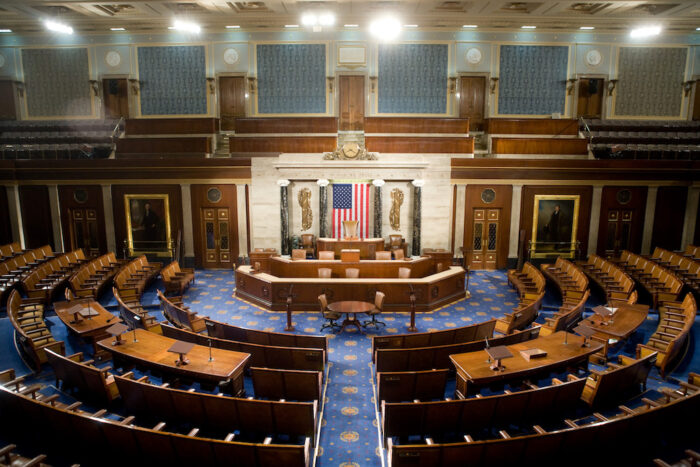Frosh, Dems Launch Full-Court Press to Save Endangered Species Act

Maryland Attorney General Brian E. Frosh (D) last week joined a coalition of 18 attorneys general and the City of New York in filing a lawsuit challenging the Trump Administration’s rollback of the Endangered Species Act (ESA).
Frosh and the attorneys general of California, and Massachusetts led the lawsuit filed in the U.S. District Court for the Northern District of California. The challenge argues that a recent rulemaking by the U.S. Fish and Wildlife Service and the National Marine Fisheries Service undermines the key requirements and purpose of the Endangered Species Act and is unlawful.
“The Trump administration is waging war on the ESA’s decades of success, undoing protections that have saved many kinds of wildlife and preserved millions of acres of critical habitat,” Frosh said. “Deciding whether to protect endangered species is not an economic question. These decisions must be guided by science, not by profits and political influence.”
For more than 45 years, the ESA has protected thousands of threatened species, including the bald eagle, California condor, grizzly bear, and humpback whale. Enacted under the Nixon administration in 1973, the act is intended “to halt and reverse the trend toward species extinction, whatever the cost.” The Trump administration’s rules would dramatically weaken current protections and reduce federal ESA enforcement and consultation, putting these endangered species and their habitats at risk of extinction, the attorneys general said.
In Maryland, there are 13 animals and eight plants listed as endangered or threatened under the Endangered Species Act.
U.S. Interior Secretary David Bernhardt said in August that the changes were “designed to increase transparency and effectiveness.”
“The revisions finalized with this rule-making fit squarely within the president’s mandate of easing the regulatory burden on the American public, without sacrificing our species’ protection and recovery goals,” Commerce Secretary Wilbur Ross added at the time.
In the lawsuit, the attorneys general challenge the rules as arbitrary and capricious under the Administrative Procedure Act, unauthorized under the Endangered Species Act, and unlawful under the National Environmental Policy Act. Of specific concern are the U.S. Fish and Wildlife Service and the National Marine Fisheries Service actions to:
- Inject economic considerations into the Endangered Species Act’s science-driven, species focused analyses;
- Restrict the circumstances under which species can be listed as threatened;
- Expand the Act’s narrow exemptions for designating critical habitats and limit the circumstances under which a habitat would be designated, especially where climate changes poses a threat;
- Reduce consultation and analyses required before federal agency action;
- Radically depart from the longstanding, conservation-based agency policy and practice of providing the same level of protection to threatened species afforded to endangered species, which is necessary to prevent a species from becoming endangered;
- Push the responsibility for protecting imperiled species and habitats onto the states, detracting from the states’ efforts to carry out their own programs and imposing significant costs; and,
- Exclude analysis of and public input on the rules’ significant environmental impacts.
In addition to Maryland, the suit was joined by the attorneys general of California, Colorado, Connecticut, Illinois, Massachusetts, Michigan, Nevada, New Jersey, New Mexico, New York, North Carolina, Oregon, Pennsylvania, Rhode Island, Vermont, Washington, the District of Columbia and the City of New York.
A coalition of environmental groups has filed a separate lawsuit, including: Earthjustice for the Center for Biological Diversity, Defenders of Wildlife, Sierra Club, Natural Resources Defense Council, National Parks Conservation Association, WildEarth Guardians and the Humane Society of the United States.
There also are efforts in Congress to fight the law’s rollback.
Two weeks ago, House Natural Resources Chairman Raul Grijalva (D-Ariz.) and U.S. Tom Udall (D-N.M.) introduced the Protect America’s Wildlife and Fish in Need of Conversation Act of 2019. The legislation would repeal all Trump administration changes to the Endangered Species Act. Sen. Chris Van Hollen (D-Md.) is a co-sponsor of the Senate legislation.
Earlier this year, Rep. Debbie Dingell (D-Mich.) reintroduced the Recovering America’s Wildlife Act, which would dedicate roughly $1.4 billion to the Wildlife Conservation Restoration Program for “proactive, voluntary efforts led by the states, territories and tribal nations to prevent vulnerable wildlife from becoming endangered.”
“The Endangered Species Act is among the most effective ever passed,” she said in a statement. “For more than 40 years, we have come together in bipartisan fashion to protect species critical to maintaining the balance of our wildlife.”
Dingell is the widow of the late Rep. John Dingell (D-Mich.), whose legislation in the early 1970’s helped create the Endangered Species Act.
Maryland Reps. Anthony G. Brown (D), Jamie Raskin (D) and John P. Sarbanes (D) are among the 124 bipartisan co-sponsors of Dingell’s legislation.
Susan J. Demas of The Michigan Advance contributed to this story.




 Creative Commons Attribution
Creative Commons Attribution